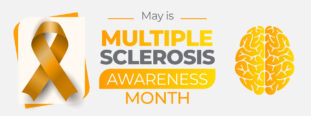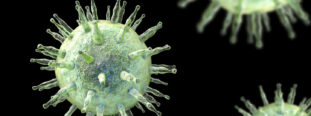Treating acute relapses
MS medications are intended to make relapses less frequent and/or severe. But relapses can still strike at any time, and often at the worst possible time – while studying for an exam, before a big family event, or just when you’ve been lulled into thinking that your symptoms are under control.
Relapses are acute events – new or worsening symptoms appearing over the course of a day or two. A true relapse is different from a short-term worsening of symptoms that can occur because of an increase in body temperature (hot tubs, sun exposure, fever or infection, etc.). But although they are called acute, relapse symptoms can persist for days, weeks or months. In some cases, the impairments don’t really go away and you have to adjust to a “new normal” of how you feel on a given day.
One of the larger groups investigating MS is the North American Research Committee on Multiple Sclerosis (NARCOMS), which has recently published a survey of 638 people who have had a relapse in the past year (Nickerson and colleagues. Mult Scler Relat Disord 2015;4:234-240).
The following is a summary of some of the key findings from the survey.
• Most people have had infrequent relapses (10 or fewer) over the course of their illness. Women were more likely to report more frequent relapses, and a longer duration of each relapse episode.
• 72% of people are currently taking an MS medication.
• 50% of relapses were rated as moderate in severity (multiple symptoms usually lasting longer than 1 week).
• People reported an average of 7 new or worsening symptoms during a relapse episode. The most common symptoms were MS fatigue, leg weakness, sensory problems (numbness, tingling, pain), and difficulty walking. Men were more likely to report sexual problems. Women were more likely to report cognitive problems (difficulty thinking planning, remembering, etc.). If a relapse lasted less than one week, it was less likely to be associated with muscle weakness, cognitive problems or dizziness.
• More women than men said that their most recent relapse persisted for more than one week (63% vs. 47%).
• One month after the relapse, 49% said they felt better, 17% said there was no change, and 35% said they felt worse. People were more likely to say they felt better if their relapse was treated: one-third said they felt a little better, 20% said they were better, and 7% were much better.
• 55% of people said that their relapse caused them to miss going to work or school. The minimum amount of time missed was half a day. Two-thirds of people said that their relapse got in the way of managing their household tasks or child care.
What can be done?
There are many disease-modifying therapies used to treat MS (e.g. interferons, Copaxone, Aubagio, Tecfidera, Gilenya, Tysabri, Lemtrada). They are meant to prevent relapses or make relapses less severe. But these are chronic medications and they aren’t used to treat an acute relapse episode.
There are several options for treating acute relapses, and 89% of people in the survey said that at some point they had received one. The most common is a course of steroids either given orally or intravenously (a needle into the vein). Common regimens for acute relapses are intravenous Solu-Medrol (methylprednisolone) 500-1000 mg per day for 3-5 days, or oral prednisone 1000-1250 mg per day for five days (National MS Society 2008). In Canada, a five-day course is generally preferred (Morrow et al. Can J Neurol Sci 2009;36:213-215). Studies have shown that steroids improve recovery and lessen disabling symptoms after a relapse (Filippini et al. Cochrane Database Syst Rev 2000;(4):CD001331; Brusaferri & Candelise. J Neurol 2000;247:435-442).
The NARCOMS found that the most common side effects that occurred after a course of steroids were difficulty sleeping, a metallic taste in the mouth, headache, symptoms of depression, and muscle pain.
An alternative to steroids is ACTH (adrenocorticotropic hormone). In Canada, the product is a synthetic formulation (Synacthen Depot) that is injected into the muscle. The dose is tailored to each person but generally one dose per day for three days, and can be continued until the symptoms subside. ACTH works somewhat differently than steroids. In addition to its anti-inflammatory effects, it may also have a beneficial impact on damaged cells in the brain, according to the results of preliminary studies (Benjamins et al. Glia 2013;61:1206-1217; Benjamins et al. J Neurosci Res 2014;92:1243-1251).
ACTH has been shown to be as effective as steroids in improving recovery and function after a relapse (Abbruzzese et al. Ital J Neurol Sci 1983;4:169-172; Thompson et al. Neurology 1989;39:969-971). Its side effects are similar to those seen with steroids. ACTH is typically used in people who can’t tolerate steroids or don’t want to take them. It may also be an especially good choice for people at risk of osteoporosis because it appears to stimulate new bone formation (Arnason et al. Mult Scler 2013;19:130-136). Studies are now investigating whether ACTH improves MS fatigue and recovery from cognitive dysfunction associated with MS relapses.
Tell us your experiences with MS relapses.
Share this article
Facebook Twitter pin it! Email
Related Posts
Back





